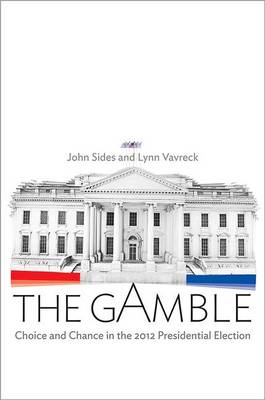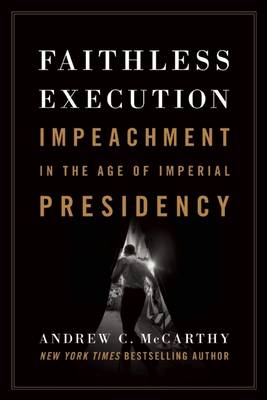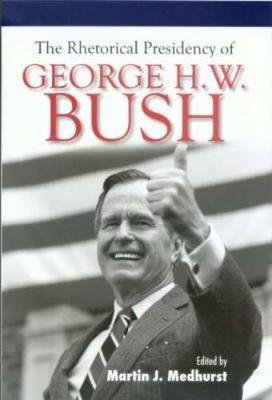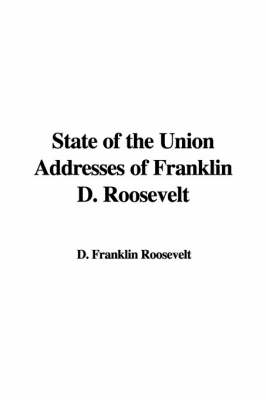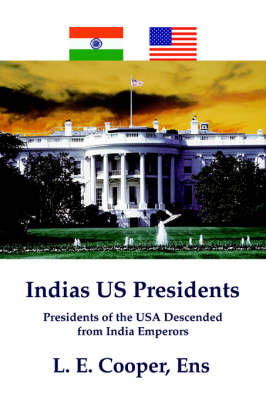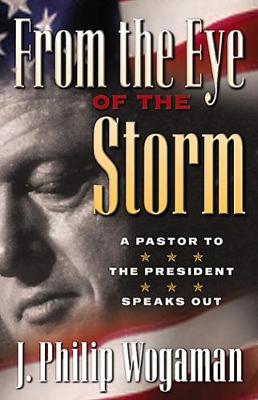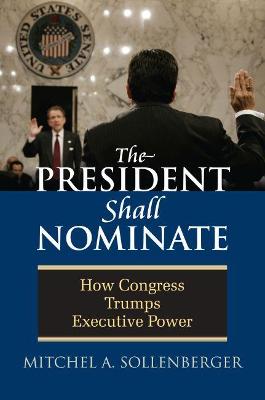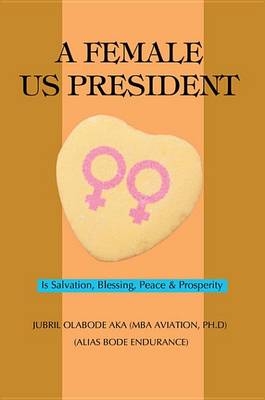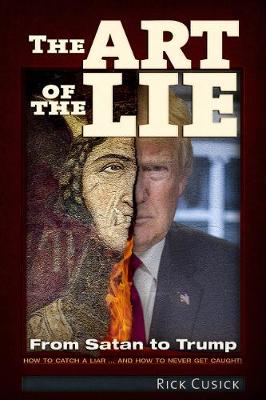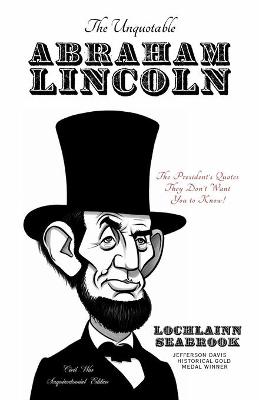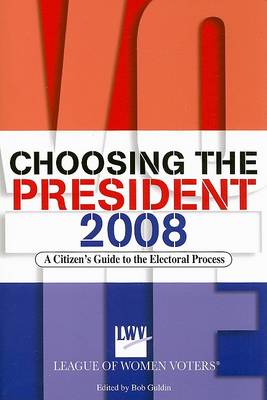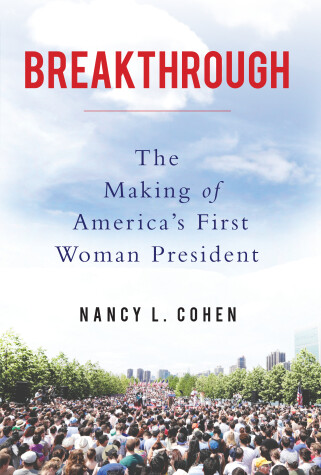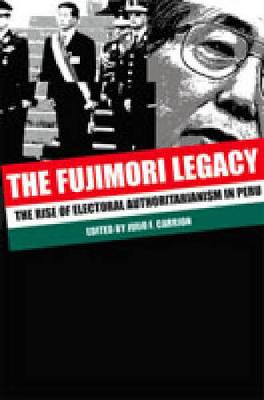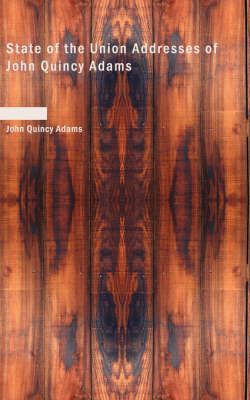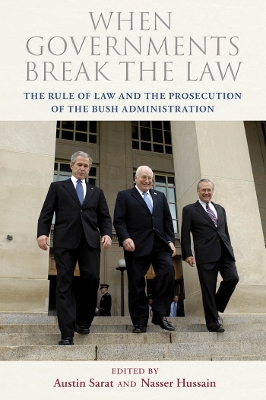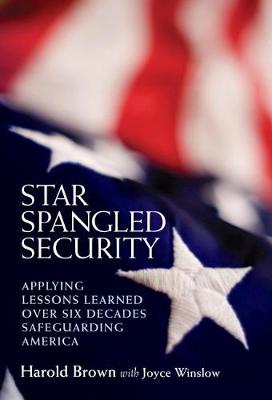"Game changer." We heard it so many times during the 2012 U.S. presidential election. But what actually made a difference in the contest - and what was just hype? In this groundbreaking book, John Sides and Lynn Vavreck tell the dramatic story of the election - with a big difference. Using an unusual "moneyball" approach, they look beyond the anecdote, folklore, and conventional wisdom that often pass for election analysis. Instead, they draw on extensive quantitative data about the economy, pub...
We still imagine ourselves a nation of laws, not of men. This is not merely an article of faith but a bedrock principle of the United States Constitution. Our founding compact provides a remedy against rulers supplanting the rule of law, and Andrew C. McCarthy makes a compelling case for using it. The authors of the Constitution saw practical reasons to place awesome powers in a single chief executive, who could act quickly and decisively in times of peril. Yet they well understood that unchec...
The Rhetorical Presidency of George H. W. Bush (Presidential Rhetoric)
For George H. W. Bush, the distinction between campaigning (""politics"") and governing (""principles"") was crucial. Once in office, he abandoned his campaign mode and with it the rhetorical strategies that had brought electoral success. Not recognizing the importance of rhetoric to policy formation and implementation, Bush forfeited the resources of the bully pulpit and paid the price of electoral defeat. Here, scholars explore the first Gulf War, the fall of the Berlin wall, the ""New World O...
State of the Union Addresses of Franklin D. Roosevelt
by D Franklin Roosevelt
Since Abraham Lincoln's death, generations of Americans have studied his life, presidency, and leadership, often remaking him into a figure suited to the needs and interests of their own time. This illuminating volume takes a different approach to his political thought and practice. Here, a distinguished group of contributors argue that Lincoln's relevance today is best expressed by rendering an accurate portrait of him in his own era. They seek to understand Lincoln as he understood himself and...
According to J. Philip Wogaman, the drama being played out in Washington represents a struggle for the nation's soul. On one side is an emphasis on repentance and forgiveness, time-honored themes of the nation's formative religious traditions. On the other side is an emphasis on condemnation and punishment for wrongdoing. The question is, which represents the more appropriate path for the future of the United States? This is the question Wogaman sets out to answer in this fascinating book.
The Constitution clearly states that the president ""shall nominate, and by and with the advice and consent of the Senate, shall appoint"" individuals to positions in the executive and judicial branches; yet the process may sometimes seem murky. While much has been written about the confirmation phase of those appointments, far less attention has been paid to the pre-nomination process - until now.In this groundbreaking book, Mitchel Sollenberger takes readers behind the scenes to explain what h...
What Do We Do Now? a Workbook for the President-Elect
by Stephen Hess
Choosing the President (Choosing the President (Paperback))
by The League of Women Voters
Why Americans have never elected a woman president, how we changed to make it possible, and why it matters. From Hollywood to the halls of Congress, a lively conversation about women's leadership, equal pay, and family–work balance is underway. On the cusp of a historic breakthrough—the potential election of America's first woman president—Nancy L. Cohen takes us inside the world of America's women political leaders. Drawing on hundreds of hours of interviews with women governors and senators f...
The Fujimori Legacy
President Alberto Fujimori's sudden resignation in November 2000 brought an end to a highly controversial period in Peruvian history. His meteoric rise to power in 1990 fueled by widespread popular support, followed by his decision to dissolve Congress and rule by decree in 1992, has made his regime a focus of special attention by scholars trying to understand this complex and contradictory presidency. This book offers a comprehensive assessment of Fujimori's regime in the context of Latin Amer...
State of the Union Addresses of John Quincy Adams
by John Quincy Adams, Former
When Governments Break the Law
Recent controversies surrounding the war on terror and American intervention in Iraq and Afghanistan have brought rule of law rhetoric to a fevered pitch. While President Obama has repeatedly emphasized his Administration’s commitment to transparency and the rule of law, nowhere has this resolve been so quickly and severely tested than with the issue of the possible prosecution of Bush Administration officials. While some worry that without legal consequences there will be no effective deterrenc...
Who is Pete Buttigieg? The mayor of South Bend, Indiana emerged from relative obscurity to become a serious contender for president of the United States of America. Is he the right foil for Donald Trump? Mayor Pete Buttigieg has raised seven million dollars and captivated the nation in media and at town halls during his short time as candidate for president of the United States. He's a veteran of the war in Afghanistan as a lieutenant in the Navy Reserve, a Harvard graduate and Rhodes scholar,...
Harold Brown served as U.S. secretary of defence when the Soviet Union posed an existential threat with superior conventional force capability and a daunting nuclear weapons arsenal. No one could have been better suited to deter the Soviets during that most dangerous period in the Cold War. A physicist, Brown had previously led Livermore Laboratory and its development of the Polaris missile warhead. By age 33 he was director of Defence Research and Engineering, and he later served as secretary o...

